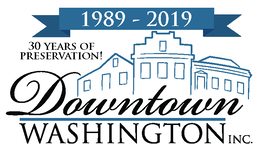 Downtown Washington, Inc. is a non-profit organization dedicated to economic development and preservation of our history, heritage and historic structures. Downtown Washington, Inc. was founded in 1959 as a merchants committee and was incorporated in 1973. We are one of the first five pilot Main Street Programs in Missouri chosen in 1989. Downtown continues to be the heart of our community, thanks to dedicated use of the Main Street. A ROADMAP TO REVITALIZATION FOR COMMUNITIES OF ALL SIZES… Every community and commercial district is different, with its own distinctive assets and sense of place. The Main Street Approach™ offers community-based revitalization initiatives with a practical, adaptable four point framework for downtown transformation that is easily tailored to local conditions. The Main Street Approach helps communities get started with revitalization, and grows with them over time. 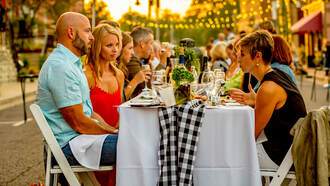 WHAT ARE THE MAIN STREET APPROACH FOUR POINTS? • ECONOMIC VITALITY focuses on capital, incentives, and other economic and financial tools to assist new and existing businesses, catalyze property development, and create a supportive environment for entrepreneurs and innovators that drive local economies. • DESIGN supports a community’s transformation by enhancing the physical and visual assets that set the commercial district apart. • PROMOTION positions the downtown or commercial district as the center of the community and hub of economic activity, while creating a positive image that showcases a community’s unique characteristics. • ORGANIZATION involves creating a strong foundation for a sustainable revitalization effort, including cultivating partnerships, community involvement, and resources for the district. 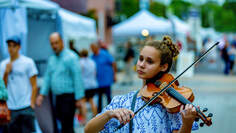 HOW CAN YOU SUPPORT A DOWNTOWN WASHINGTON, INC. EVENT? We have many sponsorship opportunities. Our events draw visitors from throughout Missouri and the Midwest. Your financial support not only helps us build awareness in the community, it also supports year round downtown preservation and economic development efforts. Please consider being a part of our success in keeping downtown Washington the heart of Washington and a source of pride for our community. ACHIEVEMENTS & HIGHLIGHTS • In 2012, Downtown Washington, Inc. was named a Great American Main Street by the National Main Street Center, an honor only given to three communities in the US each year. This is awarded to communities that show excellence in Main Street preservation, design, events and economic development. • Over 70 unique and locally owned businesses call downtown Washington home. These businesses are vital to the economic development of Washington because 68% of money spent at local businesses stays in Washington, whereas only 43% stays from chain stores. • Downtown Washington, Inc. hosts 30+ events and trainings each year welcoming over 85,000 visitors. Multiple volunteer committees meet year round to plan the events and hundreds of volunteers help run them. • Downtown Washington, Inc. is a national model for preservation and economic development and is one of only seven nationally and state accredited Main Street Communities in Missouri. • Downtown Washington is a resource for attracting business, industry and new residents to Washington. A vibrant community center, like downtown Washington, signals a strong community overall. A busy downtown offers community engagement and opportunities to get involved. FROM OCTOBER 2018 - SEPTEMBER 2019… • 9,953 Volunteer hours valued at $76,865 • 30 Net new jobs • $8,318,599 in private investment • $417,725 in public investment • 37 Potential new businesses and/or property owners consulted 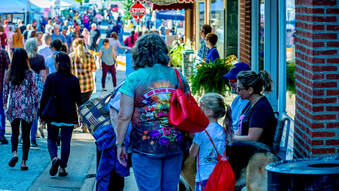 THE SECRET TO OUR SUCCESS… This is an easy question to answer and it’s just one word…teamwork. Teamwork is essential in every aspect of what we do. From our staff, to the board of directors to our committees and volunteers, teamwork is the key. With a staff of four full-time and two part-time employees, volunteers are essential to achieve 84 event and training days that we host each year. Teamwork also extends to our relationship with the Washington Area Chamber of Commerce and City of Washington. Each organization performs a key role in the growth and prosperity of Washington. The informal structure of this team is… • Downtown Washington, Inc. counsels and searches for small businesses and potential property owners for the downtown district. • Washington Area Chamber of Commerce counsels and searches for small businesses to locate outside of downtown. • City of Washington counsels and searches for large businesses and industry to relocate or expand to Washington. There are also many other commissions and committees that are part of this team including, but not limited to, Core Restructuring Committee, Economic Vitality Committee, 353, Tourism Commission, Division of Tourism, Division of Community and Economic Development and our many service organizations. Keep in mind, we all have the same goal…the success, growth and continuation of our communities. We have different approaches and methods…that is an asset! Approach every meeting with an intention of cooperation and success and you will see progress. 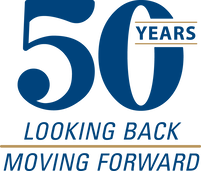 ECC was founded in 1968 and classes began in September 1969, making 2019 a historic year. The College wrapped up its 50th anniversary celebration by participating in several area parades during the summer, and in September an event on campus featuring activities, including a car display, petting zoo, inflatables and food trucks. A class reunion was also held for alums to see old friends. In addition, ECC sealed a time capsule containing mementos of the past 50 years to be opened in 2068 for the 100th anniversary. Looking ahead, President Dr. Jon Bauer said the college will focus on its new strategic plan, SOAR to 2024. “We begin this new year focused on developing the initiatives in our new strategic plan that will greatly enhance our college and our surrounding communities,” he said. “Last year will be remembered as a springboard for our current plan,” Bauer added. “I will remember it as one of the most exciting and substantial years in recent memory for East Central College.” The college is governed by a board of trustees. The board includes six members, two from each sub-district. ECC students can complete their first two years of coursework toward a bachelor's degree and then transfer to a four-year institution. In addition, there are more than 25 career/technical programs are offered with Associate of Applied Science (AAS) and certificate options available for students preparing to enter the workforce. The Union campus sits on over 200 acres. The college also has two locations in Rolla and offers classes in Washington. 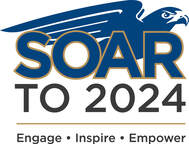 Soar to 2024 In August, the Board of Trustees approved a new 5-year strategic plan — SOAR to 2024. The architects of the plan enlisted the assistance of students, administration, faculty, staff, trustees, community members and business leaders to ensure that all stakeholders had a voice in the process. SOAR to 2024 features a new mission and vision for the college, as well as a new set of values and five major strategies: Pathways, Partnerships, Employees, Financial Strength and Rolla. 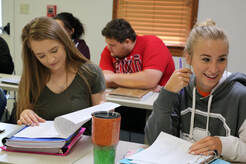 New Dual Credit Opportunities The college implanted a plan last year to provide more educational opportunities to area students through an earlier college experience. In December, trustees authorized free dual credit classes to high school students who are on the federal Free and Reduced Lunch program. The new initiative took effect in the 2020 spring semester that began Jan. 21. This move provides an avenue for ECC to remove the barrier for high school students who don’t have access to traditional financial aid. Students taking dual credit classes are taught in their high school by a teacher from their school who is certified in that discipline by ECC. The college grants the student credit hours upon completion of the class. Data show that students who participate in early college programs are more likely to enroll full-time after high school. Early college can shorten the time to degree and reduce the overall cost of higher education for students and their families. ECC Brings Back Baseball, Adds Women’s Soccer In December, trustees also agreed to expand the slate of sports offerings to include men’s baseball and women’s soccer. Women’s soccer will start in fall 2020 and men’s baseball will return to the field in spring 2022. The baseball program was discontinued in 2001 due to budget cuts after starting in 1974. Men’s baseball will have a roster of 35 players while women’s soccer will have a roster of 25 student-athletes. There are three primary reasons for moving forward with these two sports: enrollment, student success and revenue generation. Historically, student-athletes have a higher grade point average, course completion rates, and graduation and transfer rates than non-athletes. Free Textbook Project During the 2019 summer semester the college began to provide lower cost textbooks for students. In some cases textbooks are free. Community college students spend an average of $1,400 on books and supplies each year and this initiative lessens the burden for them ECC is using open educational resources (OER) that are either copyright-free textbooks, or have a license that allows for reuse. Students will get the same quality information at little or no cost. The idea began with the English department where students were paying about $140 for a required textbook. Now, those students are using a textbook that only costs $34. The project is expected to be expanded to other classes as the college continues to look for methods to lower the barriers for students. Higher Learning Commission Visit A team from the Higher Learning Commission (HLC) completed its on-site work in November. The College remains fully accredited and has taken positive steps to improve in the areas from assessment to planning to governance. The HLC team read and heard about a number of significant, substantive changes that have occurred over the past few years. The energy and engagement was evident throughout the visit, and is reflective of the work happening on campus every day. 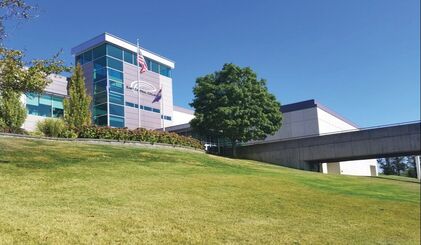 Looking Ahead In 2020, the college will move forward in implementing SOAR 2024. ECC also will focus on its assessment, evaluating new programs and revising policies. A grant is being sought by the ECC Foundation to repair and improve the walking trail on the Union campus. In addition, the Foundation will begin spearheading a fundraising campaign to raise funds to upgrade the current baseball field. The college anticipates the completion of a greenhouse near the ECC Training Center in Union. The greenhouse is substantially complete and it will enhance the college’s culinary program. It is funded with federal, state and local dollars. 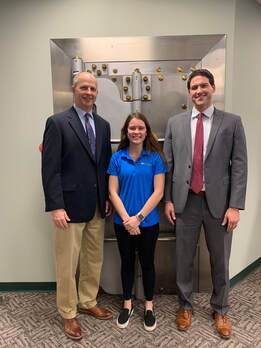 As the 21st century continues to develop new technology in every aspect of the world, including the workplace, more and more people are finding ways to succeed at any age. People are working for years longer due to technology, creating the largest age gap the workplace has ever experienced. In some industries, communication, workplace culture, the promotional ladder and many other variables are all changing as the gap in age continues to increase. Julie Scannel, HR director for GH Tool and Mold, believes that some of the problems associated with these arising challenges reflect these younger generations. “Employees prioritizing their needs isn’t really something we used to see very often. They’re not afraid to lose a job if it means a better life for themselves; whereas previous generations believed the job was the key to a better life,” Scannell said. Workplaces outside of Washington have defined these changes as a limiting factor to their success. Washington, however, views today’s workforce challenge as a workforce opportunity. David Englebrecht, Chief Operations Officer, President of Citizens Bank believes that the Washington area allows the bank to hire high schoolers to work alongside the veterans like himself. “The young people that are coming to work for us are great examples of what the parents and teachers in this community are teaching them to be,” Englebrecht said. “They're hard workers and very competitive and driven. I think a lot of those people my age are somewhat taken aback that they're hungry for movement upward quickly, which isn't necessarily a bad thing.” Luke Meyer, Vice President of Citizens Bank grew up in the Washington community and when he was hired on at the bank, was one of the youngest loan officers the bank had ever had. Now he helps fill the gaps between generations. Meyer first began working when internet banking first started. As new ideas are created from younger employees he has helpful insight on what it means to be present during such an impactful shift. “When I started, internet banking was the primary cutting edge thing. We've evolved into mobile banking. You can get eAlerts, and you can do everything from your phone now. The younger employees have some really great ideas. There's a lot of different perspectives being thrown in, and their ideas are being heard. The challenge is just trying to manage those different styles, and bring them into our reality,” Meyer said. Paige Robinson, a junior at Washington High School and part-time teller, views the opportunity to work with everyone at the bank as a perspective of what it takes to work in any industry, especially at the bank. “The older generations have the full time jobs that could potentially be open by the time I’m out of college. Working with people of all ages opens my eyes and teaches me what I have to work towards no matter where I end up,” Robinson said. Similar to the different generations at Citizens Bank, GH Tool and Mold varies in generations. Aaron Meyer and Blaine Straatmann, both work at GH during the school day before their normal afternoon shifts. This partnership with Four Rivers Career Center and GH has allowed both of these students more opportunities to see what it’s like working more than just after school. Meyer and Straatmann agree that the culture at GH has a big effect on what their experience is truly like. “I don’t think [the workforce challenge] really affects us because we all get along really well,” Meyer said. “I’ve heard about it from the media more than from problems that may happen during work.” The relationships between the community, schools, and businesses in Washington reflects the relationships inside the workplace, as well. “We try to be good friends with all of the workers so that when we make mistakes like setting up the same tools twice we aren’t afraid to go and talk with the older employees,” Straatmann said. Robinson agrees that the relationship inside the office helps overcome any challenges that do arise because of an age difference. “We are all a good team. If someone is in the midst of something, we have each other’s back and make sure that we get the next customer,” Robinson said. “Everyone at Citizens Bank treats me like an adult. Customers ask sometimes if I’m just ‘helping out’ but everyone I work with sticks up for me and says ‘no she’s a part of us’,” Robinson said. Washington finds that the different generations are a benefit, however, there are still stereotypes of what the workplace in this generation is going to be like. “There's always going to be disagreements and there's always going age differences in the workplace, therefore, it’s less about the disconnect and more about how to overcome those stereotypes through the generations,” Englebrecht said. Even though there are challenges with training older employees in new technology while also teaching younger generations the expectations of working in a certain environment, the benefit of having a large array of generations working together outweighs any challenges. “Every generation has people with good and bad work ethics, individuals who are eager to learn and contribute, and individuals who are just in it for themselves. We are fortunate to have a company and community culture that promotes the former, regardless of age,” Scannell said. 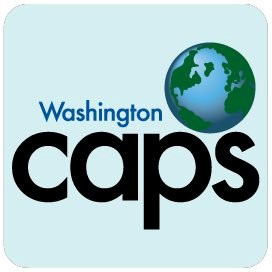 The Center for Advanced Professional Studies, CAPS, is a program through Four Rivers Career Center that brings together high school students and the community to create an innovative partnership focused on entrepreneurship in the real world. The 2019 CAPS students partnered with the Chamber of Commerce to sell advertisements to help produce this magazine. Students traveled to different businesses, spoke with professionals and sold advertisements to fully fund this edition. “The experience was great. It gave me practice with speaking to professionals and helped me gain experience for my future,” Cameron McElhaney said. Not only was this project beneficial for both the magazine and the educational component, but it remains one of the highlights for both the community and the CAPS students. “Selling ads for the Chamber magazine, Washington Insight was my favorite project this year. I woke up every day 100% excited and ready to go try to sell the ads. I loved the experience and it felt like we were making a difference,” Colton Cozza said. For businesses it was a great opportunity to meet the future generations of business men and women. “Ethan Strubberg, a member of the CAPS program, arrived at my office dressed for success, including a tie! As scary as I know it can be for these young adults to enter a business they’re not familiar with, and then proceed to ask for advertising funds, Mr. Strubberg did so in a very mature and professional manner,” Casey Zastrow said. Other students found that being able to go outside the classroom and get invested into the community has a benefit far beyond what was expected at the beginning of the year. “This was my favorite experience so far in CAPS. It gave us real world experience when it comes to sales. It is something I’m considering pursuing in my future because of this project,” Tim Logan Roewe said. Being able to come into the different businesses has helped get these students out within the community. “The CAPS program is a wonderful program for students and the business community as a whole,” Zastrow said. The Chamber would not have been able to create this magazine without the energy, efforts, and hard work of the CAPS students. These students best represent the heart of the community of Washington. None of this would have been possible without this group of innovative young professionals. |
More from the Blog...
All
Archives
April 2024
|
-
323 W Main Street
Washington, MO 63090 -
(636) 239-2715
-
[email protected]


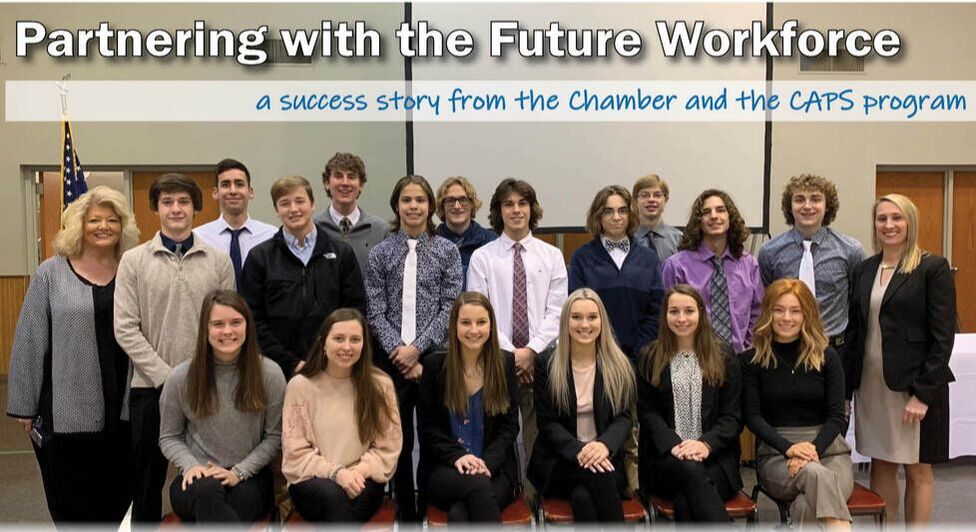
 RSS Feed
RSS Feed